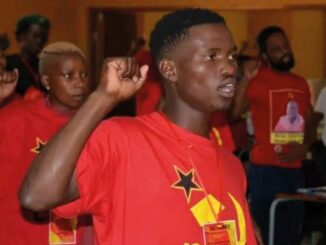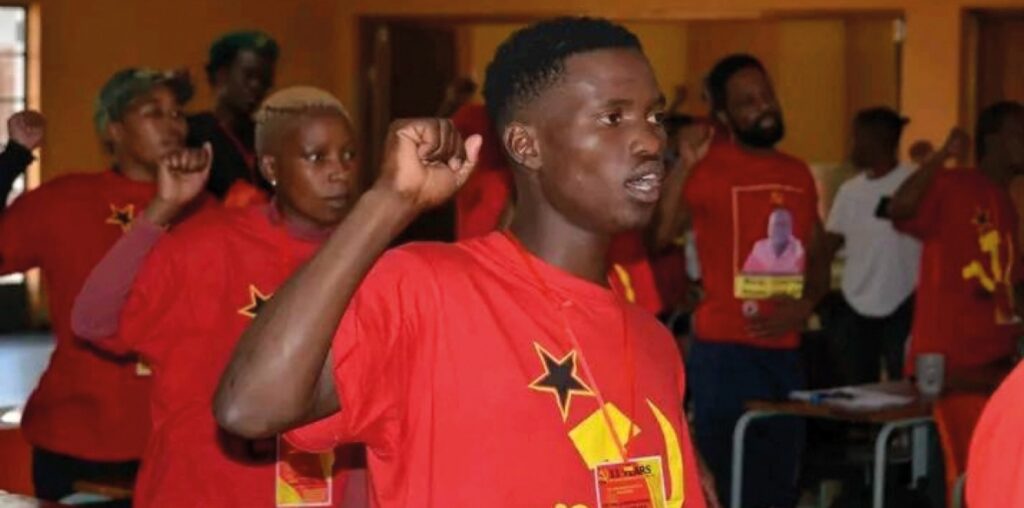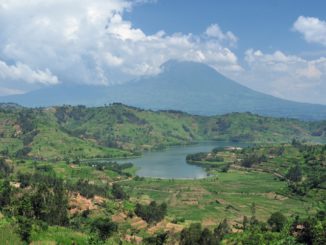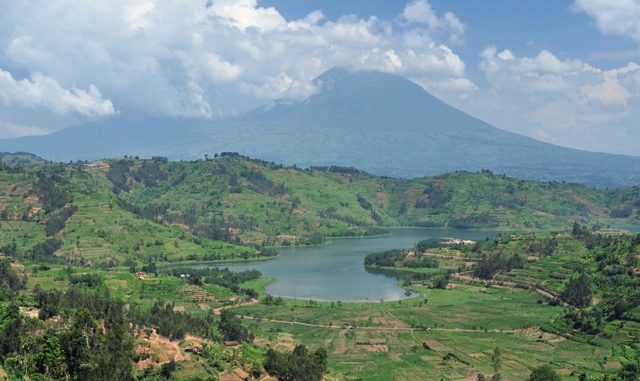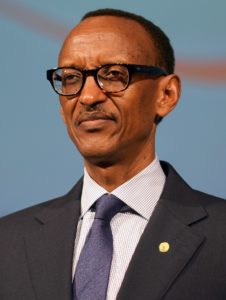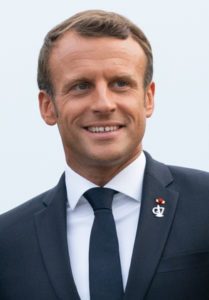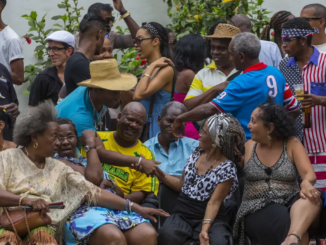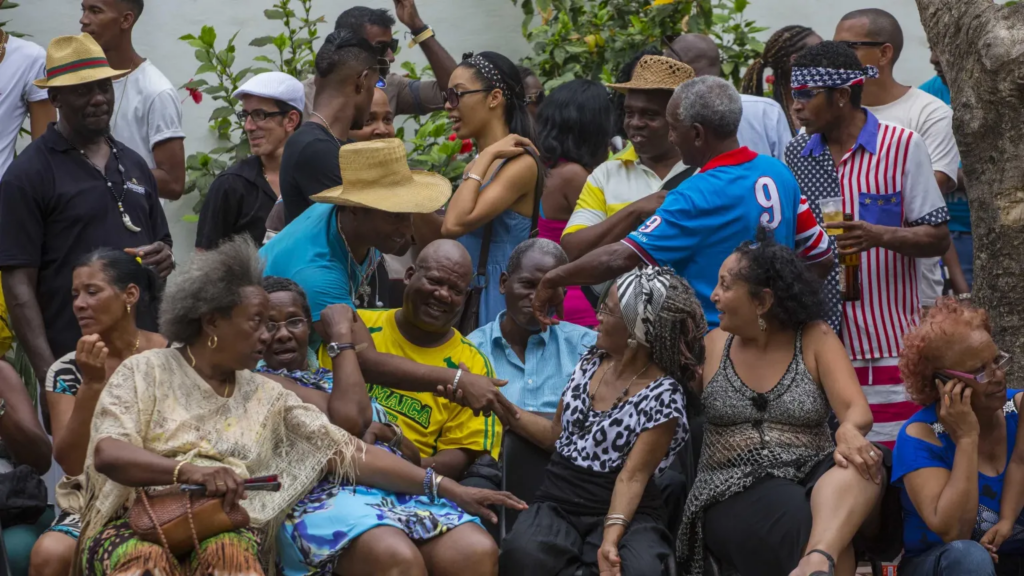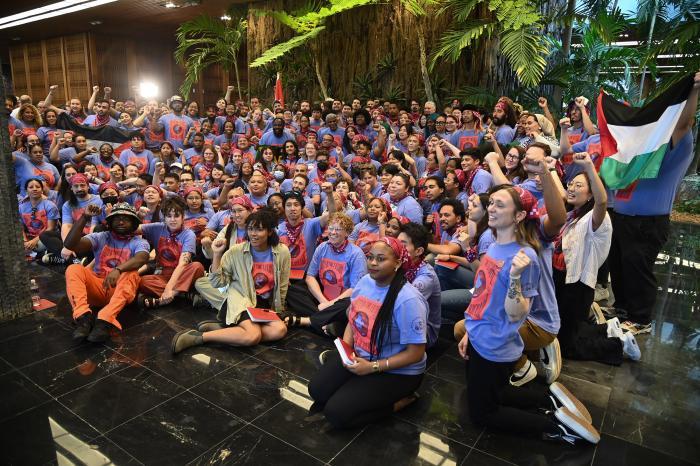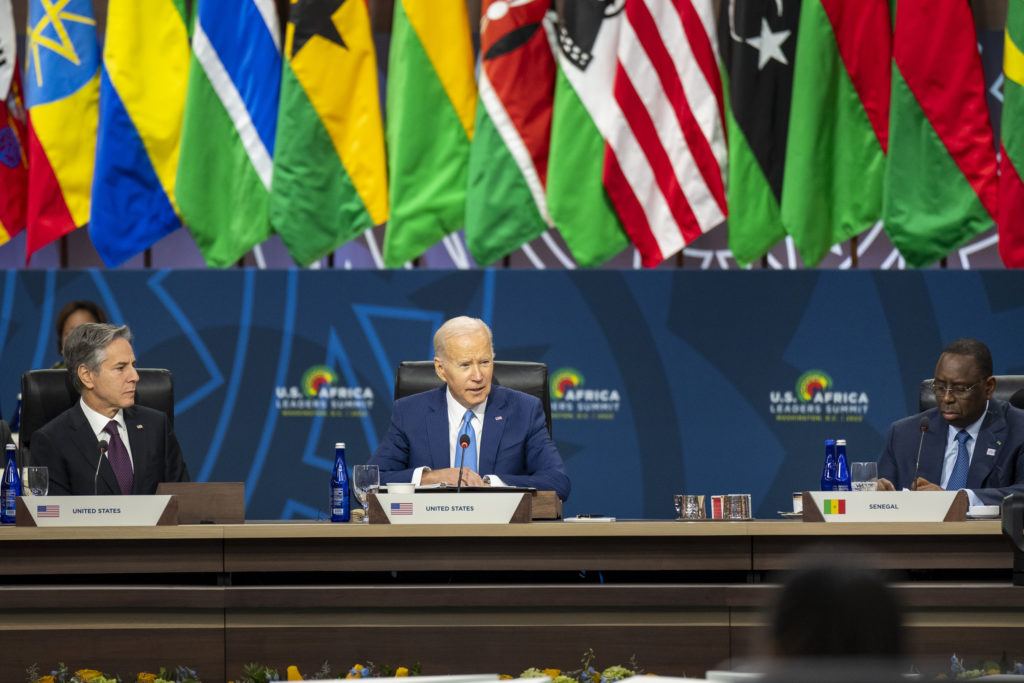
WASHINGTON, D.C.—It was a meeting of Uncle Tom and Uncle Sam.
At least, that’s how African-led anti-imperialist organization Black Alliance for Peace (BAP) referred to the Biden administration’s U.S.-Africa Leaders Summit during a Dec. 16 press conference.
“Uncle Tom” is a euphemism for a person of African descent whose loyalty appears to be with their European-descended master. “Uncle Sam” is a nickname for the United States.
“Some people think that was somewhat harsh,” said BAP National Organizer Ajamu Baraka, moderating the press conference at the Washington-based Institute for Policy Studies. “We believe it reflects the character of that relationship. African leaders claim that they want to have respect, but it’s difficult to get respect when you allow yourself to be put in a position where you are summoned to the center of empire with a stick and a carrot.”
Day 2: Amid many protesters at the DC Convention Center, where the #Biden administration's "Meeting of Uncle Tom and Uncle Sam" aka #USAfricaLeadersSummit22, is taking place, we raised the call for #USoutofAfrica! Banner painted by BAP CC member repping @aaprp @RafikiMorris. pic.twitter.com/nBY32UcNsi
— Black Alliance for Peace (@Blacks4Peace) December 14, 2022
‘100 Million Electric Vehicles’
Some perceived a major deal that took place at the summit as an example of the subservient relationship many African countries have with the United States. On Dec. 13, a memorandum of understanding was signed between the U.S. government and the governments of Zambia and the Democratic Republic of Congo (DRC) that would employ U.S. agencies’ technical assistance and financing support to mine for copper and cobalt. The goal is to help Zambia and the DRC develop an “electric vehicle value chain,” according to U.S. Secretary of State Antony Blinken. The terms of the deal remain unclear.
He added the DRC possesses 70 percent of the world’s known cobalt reserves, though other sources estimate it at about 50 percent. Meanwhile, Zambia is the world’s seventh-largest copper producer, according to the U.S. International Trade Administration.
After the deal was announced, media outlets reported a Bill Gates-backed startup, KoBold, bought a $150 million stake to use artificial intelligence to search for copper in a Mingomba-based deposit owned by the Lumambe Copper Mine in Zambia.
“Converted to copper contained in electric vehicles, it’s like 100 million electric vehicles,” KoBold President Josh Goldman told the Wall Street Journal.
Blinken touted the deal as a way to combat the global climate crisis. However, the thirst for minerals to produce gadgets and electric cars has been linked to the 2019 coup of Bolivian President Evo Morales and 5.6 million Congolese dying in a war. That led the International Court of Justice to order Uganda to pay $325 million in reparations to the DRC.
As Toward Freedom reported in August:
“Non-governmental organization Global Witness reported in April that 90 percent of minerals coming out of one DRC mining area were shown to have come from mines that did not meet security and human-rights standards. Companies relying on minerals from such mines include U.S.-based Apple, Intel and Tesla.”
‘Uncle Tom Part and Parcel of U.S. Plunder of Africa’
To counter the U.S.-Africa Leaders Summit, various organizations pulled together events to raise public awareness. The African Peoples’ Forum held Dec. 11 in Washington, D.C., attracted a couple of hundred African-descended people for three panel discussions, two of which Toward Freedom published here and here. The Global Pan-African Congress held a “people’s intervention” on Dec. 10, while BAP organized a week of actions Dec. 12-16.
“The U.S.-Africa Leaders Summit was clearly set up to obscure the real U.S. role in Africa and give legitimacy to the continuing U.S. plunder of African resources, exploitation of African people and military domination of the African continent,” said BAP Mid-Atlantic member Khari Gzifa, as he read aloud an organizational statement at the Dec. 16 press conference.
BAP Coordinating Committee member Margaret Kimberley defended the use of terms like “Uncle Tom” and “Uncle Sam.”
“Do not rejoice just because African leaders gather in Washington,” she said. “The U.S. cannot cover up its many crimes […] the overthrow and murder of [first Congolese Prime Minister] Patrice Lumumba, coups against [first African-born Ghanian Prime Minister] Kwame Nkrumah, the destruction of Libya, the murder of its president. You cannot cover all of that up with a few days of receptions and photo opportunities.”
Samir Amin analysis of neo-colonialism with Frantz Fanon Critique of the National Bourgeoisie is so useful to understanding economic constraints on African nations today. pic.twitter.com/nIzvr8wqFU
— K.Diallo ☭ (@nyeusi_waasi) December 17, 2022
Rafiki Morris, who represents the All-African People’s Revolutionary Party on BAP’s Coordinating Committee, said the summit wasn’t simply a meeting, but an indication of a partnership.
“Uncle Tom isn’t colluding with U.S. imperialism,” Morris said. “Uncle Tom is part and parcel of the U.S. plunder of Africa.”
Morris added no amount of attempting to appeal to U.S. Congressional Black Caucus members’ or African leaders’ conscience could work to transform their actions or, as he said, bring them over to “our side of the fence.”
“We now realize Uncle Tom helped build the fence.”
Julie Varughese is editor of Toward Freedom.

